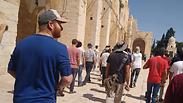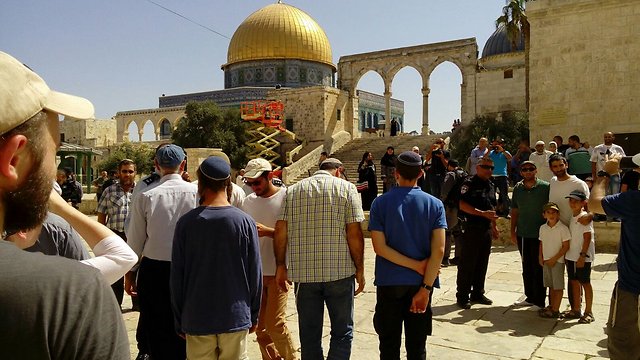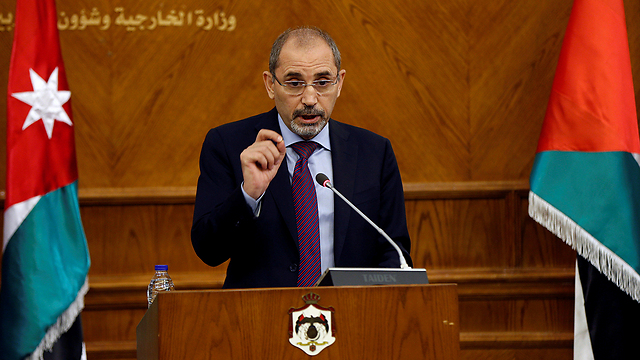
More than 12,000 Jews visit Temple Mount since September
Temple Mount groups publish new data showing at least 12,125 Jews visited holy site in first half of current Jewish year, compared to 8,229 in comparable period last year—a 47% increase; actual number most likely higher, since report excludes Jews who visited independently.
Jewish Temple Mount organizations published new data showing that more than 12,000 people made a pilgrimage to the holy site in the first half of the current Hebrew year—an increase of almost 50 percent compared to the same period last year.
In light of security tensions in Jerusalem and the fear of escalation as Passover, Israel's 70th Independence Day, the move of the American embassy to the capital and the month of Ramadan are all drawing near, the Yeraeh organizing published its half-yearly report on the matter.
The most prominent information gleaned from the report was that from the Hebrew months of Tishrei to Adar—comparable to the Gregorian months of September through March—during which at least 12,135 Jews visited the Temple Mount, compared to 8,229 last year—marking a 47 percent increase.
Yeraeh encourages ascent to the Temple Mount with "holiness and purity", and its people only assist Jews seeking to visit the place according to Halacha (Jewish law)—limiting themselves to permitted areas, following a ritual bath and under additional restrictions and conditions.
The organization's report is therefore based on a headcount by its own volunteers and is considered more stringent, as it does not include Jews who have undertaken the pilgrimage independently.
Monthly record also broken
Temple Mount organizations cross-reference their data each month with the defense establishment's own count—and that of Muslim authorities on the Mount—and a small discrepancy consistently appears stemming from the small number of Jews visiting the site not in accordance with Halachic stipulations or without Yeraeh accompaniment—usually in groups of students, pre-army preparatory program members and so on.
The same organizations have pinpointed a continuous growth over the past few years in the number of Jews undertaking the pilgrimage. The record was set this past Tisha B'Av—a Jewish memorial day for the destruction of the two Temples—when for the first time more than a thousand people visited the site in the same day, totaling 1,264. The monthly record was also broken in Av, comparable to July-August, with 4,369 Jews visiting the Temple Mount.
"The significant increase we are witnessing today began two years ago and grew stronger after the Temple Mount terror attack," Yeraeh said. "The chief reasons are kinder and more pleasant police attitudes, removing rioters and Islamic interlopers who previously bothered groups of Jews and a growing religious-rabbinical encouragement of pure Temple Mount pilgrimage."
Jordan not pleased
Data from Tisha B'Av, published days after the conclusion of the Temple Mount metal detector crisis, enraged Jordanian officials. The Hashemite Kingdom's Foreign Minister Ayman Safadi attacked "extremists' storming into the courtyard of al-Aqsa" and said that the number of Jews who climbed to the mountain that day was "a record unseen since the beginning of the Israeli occupation in 1967."
Safadi also called on Israel to "uproot the sources of tension", to allow the creation of a Palestinian state in the 1967 borders whose capital is Jerusalem and to refrain from altering the historical and juridical status quo in the al-Aqsa Mosque—or else it would itself be opening the door to the next crisis with both Jordan and the Palestinians.













